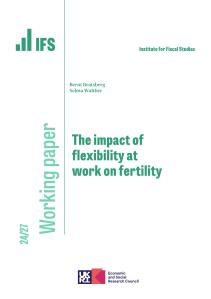As a result of the pandemic, children across the UK are likely to lose at least half a year of normal, in person schooling. In the absence of a massive policy response, the long-run effects of this learning loss are likely to be substantial.
In this IFS observation, Luke Sibieta, Research Fellow at the IFS, sets out the potential long-run costs of lost schooling. The figures are extremely large and are not intended as precise estimates. Instead, they are intended to illustrate the scale of potential costs and risks we face, and the economic rationale for a massive national plan to address this crisis.
Key findings include:
- By February half-term, children across the UK will have lost at least half a year of normal, in person schooling. This would increase to two thirds of a year if schools weren’t to reopen as normal until Easter
- Early evidence already suggests this loss of schooling is contributing to lower educational progress and skills, particularly for disadvantaged pupils
- Existing evidence on returns to schooling would imply a long-run loss in earnings of £350bn
- If by some miracle, the efforts by schools, teachers, children, parents and charities allowed us to mitigate 75% of this effect, the total loss would still be £90bn
- A large amount of these negative effects are likely to be borne by children from lower-income families, resulting in a likely rise in inequality over the long-run
- A massive injection of resources is likely to be required to help pupils properly catch up
- A useful benchmark to judge these plans is the normal cost of half a year of schooling, about £30 billion across the UK
- So far, governments across the UK have allocated about £1.5bn towards the cost of catch-up. This is highly unlikely to be sufficient to help pupils catch-up or prevent inequalities from widening.
Luke Sibieta, Research Fellow at the Institute for Fiscal Studies:
"A loss of over half a year of normal schooling is likely to have far-reaching long-run consequences. We will all be less productive, poorer, have less money to spend on public services, more unequal and we may be less happy and healthy as a result. Standard evidence on the returns to schooling would imply a total loss of £350bn, or £90bn under incredibly optimistic assumptions. The inescapable conclusion is that lost learning represents a gigantic long-term risk for future prosperity, the public finances, the future path of inequality and well-being.”
"We therefore need a policy response that is appropriate to the scale of the problem. One useful benchmark is the £30bn it normally costs for half a year of schooling in the UK. That doesn't mean we need to spend that much. But is does strongly suggest that the £1.5 billion allocated across the UK so far doesn't even start to match the scale of the challenge. A much larger policy response would allow us to consider radical and properly resourced ways to help pupils catch-up."









